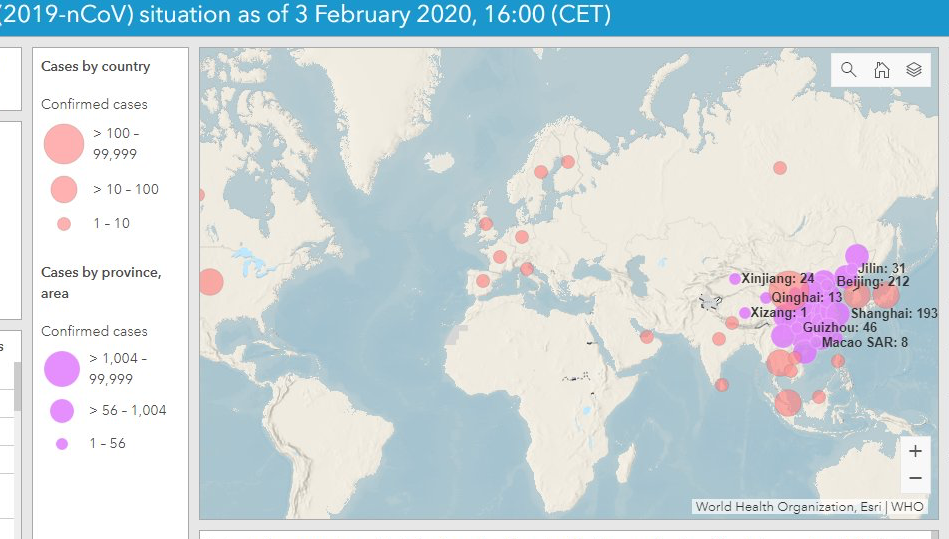Embracing veganism and animal sentience: the long view on Coronavirus outbreak


VURAL ÖZDEMİR*/TORONTO
On January 30th, the World Health Organization declared the new coronavirus (2019-nCoV) a global public health emergency. The 2019-nCoV is thought to have “jumped” from an animal reservoir, possibly bats, to humans, and currently spreading around the world by human-to-human transmission. The US CDC reports that 2019-nCoV is a “betacoronavirus, like MERS and SARS, all of which have their origins in bats”. While the exact animal source is yet to be determined, the 2019-nCoV appears to be a zoonosis, an infection that spreads from animals to humans.
The outbreak has begun in and spread beyond Wuhan, a busy metropolis in China. Cases have been documented in Canada and more than 20 countries at this time. The full genome of the 2019-nCoV is already determined by scientists, and helping to detect the infection. Efforts by governments to limit spread of the virus have resulted in patchy travel bans, health surveillance in airports and borders, amongst others. The 2019-nCoV outbreak is a clear testament that we need to think of health on a planetary scale, beyond public health within a nation state.
Accepting Animal Sentience
Scientists estimate 3 out of every 4 new or emerging infectious diseases in people are spread from animals. But this should hardly be a surprise for two reasons.
First, we continue to plentifully eat animals and animal products as food. This puts us in direct contact with microorganisms that can jump from animals to humans. Second, we have been invading, with no respect or remorse, the natural and wild habitats of animals to extract planetary resources with an insatiable appetite for the GDP-defined narrow regimes of economic growth.
In May 2019, the Intergovernmental Science-Policy Platform on Biodiversity and Ecosystem Services (IPBES) warned that 75% of the land surface and 66% of the marine environment have been significantly altered by human actions, and nearly one million animal and plant species are threatened with extinction.
Zoonotic infections are an expected consequence of (1) seeing animals merely as food sources that lack sentience and personality, (2) the massive ecological destruction we, as human kinds, have done on planet Earth, and (3) the trade and commodification of wildlife products and endangered animals that collectively brought human societies in closer proximity with the wild habitats of animals, and the microorganisms hosted by them.
Hence, a good way to reduce infectious outbreaks from animals is veganism, stopping human consumption of animal products, and importantly, recognizing animal sentience.
Climate activism to stop destruction of nature and inviting people to be vegan are necessary but social change begins in peoples’ minds. We need to shape the internal levers of social change. That means broadening the narrow mindsets that cared for animals and other life forms on the planet not out of respect for their sentience and agency but to the extent they are useful to humans, e.g., as foodstuff.
There is a way forward and concrete solution to curb the long-standing human impulses to exploit nature and wildlife habitats. The article 13 of the Lisbon Treaty in 2009 already recognized animal sentience in Europe . We should follow suit because we are less likely to eat animals, colonize wildlife and be exposed to animal pathogens, once we accept animal sentience and agency. There is a vast body of scientific evidence supporting the idea that animals do have feelings, distinct personalities, and intrinsic agency, including fish .
The concept of animal sentience is much broader than animal rights; it recognizes the feelings and personalities of animals and thus, prevents animals from being declared as “the other” and consumed as food. History tells us that fascist regimes first declare their victims “the other”, before they enact their oppression. Conversely, when we prevent the animals becoming the other, through recognition of animal sentience, we cultivate resilience against exploitation of animals and nature.
In sum, the current coronavirus 2019-nCoV outbreak is a wake-up call to embrace veganism and animal sentience, and stop wildlife trade and commodification. That would help mitigate risks for future zoonosis outbreaks, and moreover, bring about peace and dignity for many, including the nonhuman animals exploited worldwide since time immemorial.
*About the author: Vural Özdemir is a life scientist, physician and writer on responsible innovation and emerging technology governance, based in Toronto, Canada. Twitter: @CriticalPolicy1


